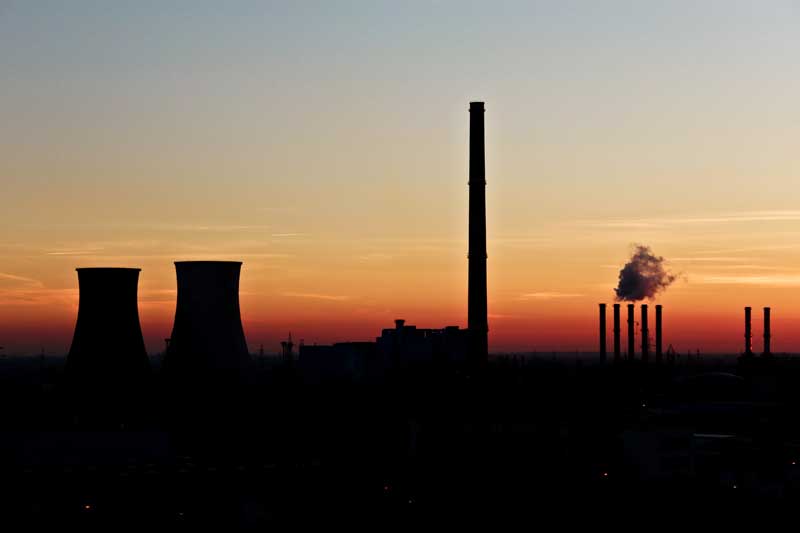
403
Sorry!!
Error! We're sorry, but the page you were looking for doesn't exist.
Gazprom alerts to EU energy instability, gas shortages
(MENAFN) Senior managers at Gazprom, the prominent Russian energy conglomerate, have expressed concerns about the stability of the European Union's (EU) energy system, highlighting the possibility of natural gas shortages. These remarks come in the wake of Gazprom's significant reduction in gas exports to the EU over the past year, attributed to a combination of Western sanctions and the deliberate sabotage of the Nord Stream pipelines.
Gazprom has historically been the EU's primary supplier of natural gas, playing a crucial role in meeting the energy demands of member countries. However, this dynamic shifted dramatically when Gazprom curtailed its exports to the EU. This reduction in supply was precipitated by Western sanctions imposed on Russia, which included measures targeting the energy sector. Additionally, the sabotage of the Nord Stream pipelines further exacerbated the situation.
The Nord Stream pipelines have been integral to the EU's energy infrastructure, serving as vital conduits for transporting Russian natural gas to the European market. These pipelines, consisting of Nord Stream 1 and the newly constructed Nord Stream 2, suffered severe damage due to underwater explosions that occurred in September of the previous year. As a result of this sabotage, both pipelines were rendered inoperable, disrupting the flow of natural gas to the EU.
The consequences of these developments are significant. With Gazprom reducing its gas exports and the Nord Stream pipelines incapacitated, the EU now faces a heightened risk of energy shortages. Natural gas is a fundamental energy source for the EU, relied upon for heating, electricity generation, and industrial processes. Any interruption in its supply can have far-reaching economic and social ramifications, potentially leading to energy crises and increased energy prices for consumers.
In conclusion, Gazprom's warnings regarding the EU's energy system and the potential for natural gas shortages underscore the fragility of the current energy landscape in Europe. The combination of sanctions and pipeline sabotage has disrupted established supply chains, posing challenges for the EU's energy security. As Europe grapples with these uncertainties, it must explore alternative energy sources and strategies to mitigate the risks associated with an unstable energy system.
Gazprom has historically been the EU's primary supplier of natural gas, playing a crucial role in meeting the energy demands of member countries. However, this dynamic shifted dramatically when Gazprom curtailed its exports to the EU. This reduction in supply was precipitated by Western sanctions imposed on Russia, which included measures targeting the energy sector. Additionally, the sabotage of the Nord Stream pipelines further exacerbated the situation.
The Nord Stream pipelines have been integral to the EU's energy infrastructure, serving as vital conduits for transporting Russian natural gas to the European market. These pipelines, consisting of Nord Stream 1 and the newly constructed Nord Stream 2, suffered severe damage due to underwater explosions that occurred in September of the previous year. As a result of this sabotage, both pipelines were rendered inoperable, disrupting the flow of natural gas to the EU.
The consequences of these developments are significant. With Gazprom reducing its gas exports and the Nord Stream pipelines incapacitated, the EU now faces a heightened risk of energy shortages. Natural gas is a fundamental energy source for the EU, relied upon for heating, electricity generation, and industrial processes. Any interruption in its supply can have far-reaching economic and social ramifications, potentially leading to energy crises and increased energy prices for consumers.
In conclusion, Gazprom's warnings regarding the EU's energy system and the potential for natural gas shortages underscore the fragility of the current energy landscape in Europe. The combination of sanctions and pipeline sabotage has disrupted established supply chains, posing challenges for the EU's energy security. As Europe grapples with these uncertainties, it must explore alternative energy sources and strategies to mitigate the risks associated with an unstable energy system.

Legal Disclaimer:
MENAFN provides the
information “as is” without warranty of any kind. We do not accept
any responsibility or liability for the accuracy, content, images,
videos, licenses, completeness, legality, or reliability of the information
contained in this article. If you have any complaints or copyright
issues related to this article, kindly contact the provider above.
Most popular stories
Market Reseach
- B2PRIME Strengthens Institutional Team's Growth With Appointment Of Lee Shmuel Goldfarb, Formerly Of Edgewater Markets
- BTCC Exchange Scores Big In TOKEN2049 With Interactive Basketball Booth And Viral Mascot Nakamon
- Ares Joins The Borderless.Xyz Network, Expanding Stablecoin Coverage Across South And Central America
- Primexbt Launches Stock Trading On Metatrader 5
- Solana's First Meta DEX Aggregator Titan Soft-Launches Platform
- Moonacy Protocol Will Sponsor And Participate In Blockchain Life 2025 In Dubai
- Primexbt Launches Instant Crypto-To-USD Exchange




















Comments
No comment